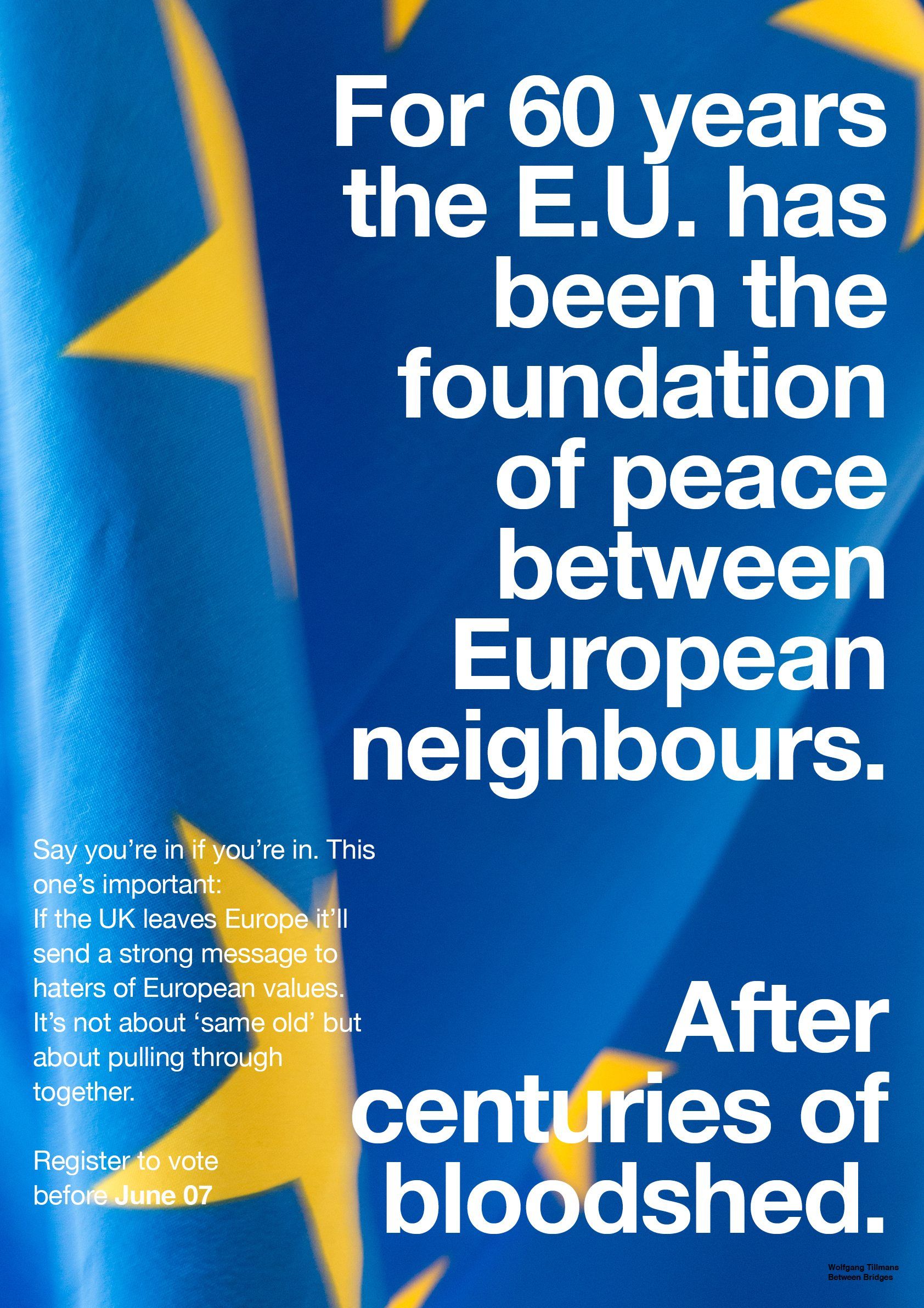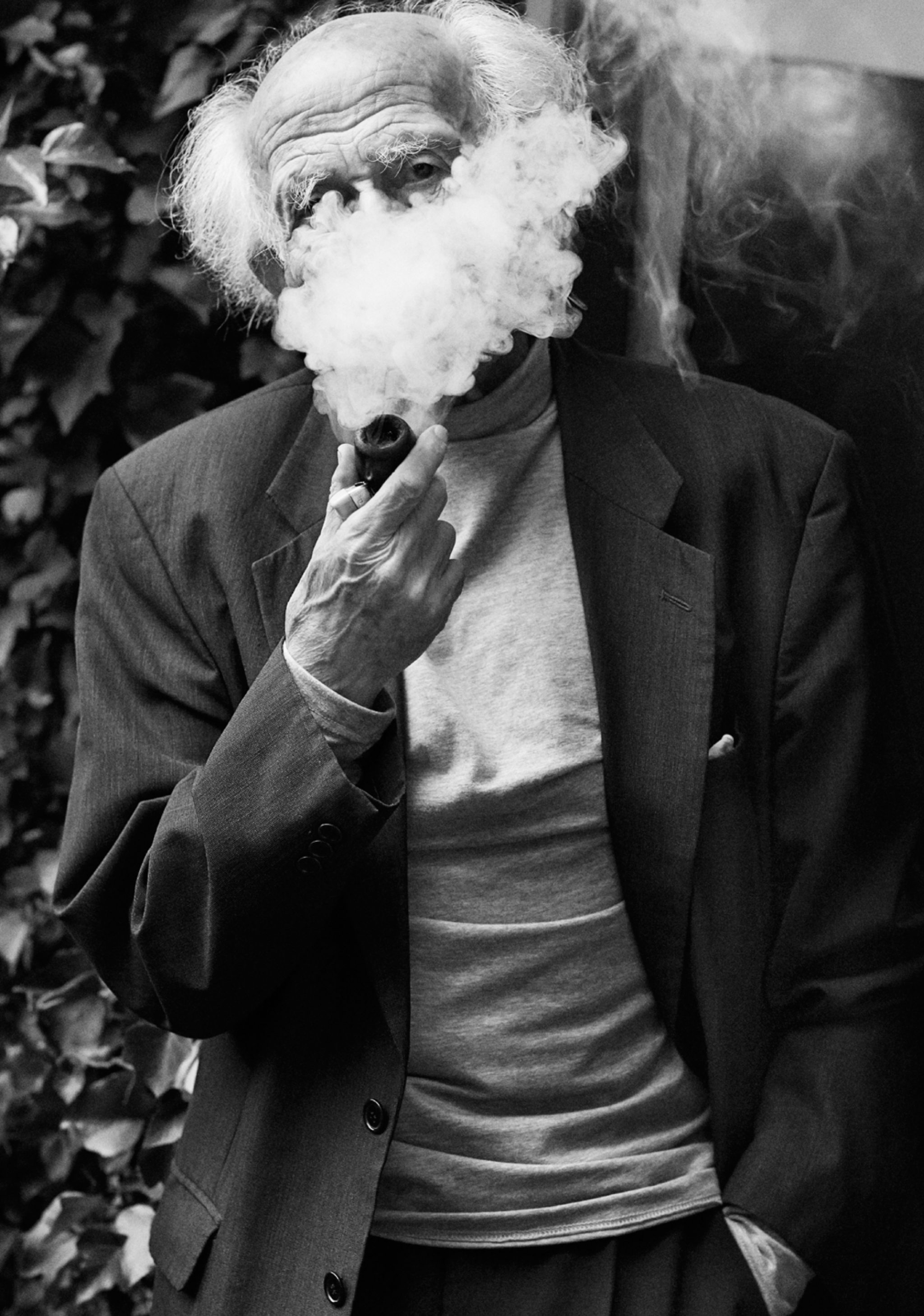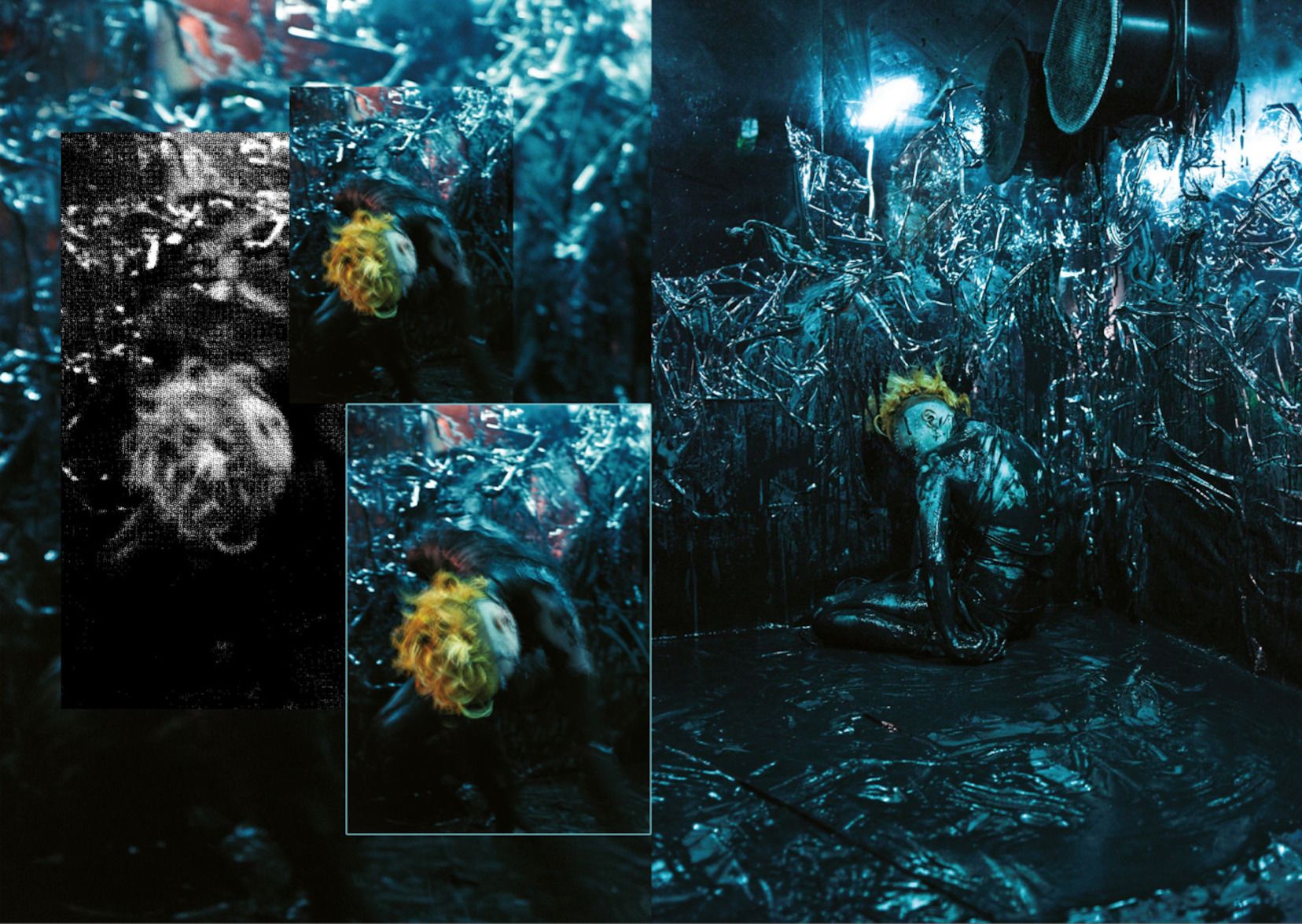BIFO BERARDI on Political Impotence and the Rise of Global Silicon Valley
|Sanja Grozdanic

When the Italian philosopher Bifo Berardi publicly referred to the death of refugees across the Mediterranean as “Auschwitz on the beach,” it appeared to us as Holocaust revisionism in the name of a good cause. While the human rights violations taking place on borders across the world are appalling and deserve urgent attention, intentionally taking rhetorical leaps has the effect of distorting history. What did Bifo mean by this? Sanja Grozdanic spoke with him to find out more.
“I declare that I’m not European anymore,” Franco Bifo Berardi wrote in his resignation letter to DiEM25, “And I declare that I have never been European.” Though an initial reading of this statement suggests cynicism, further analysis reveals what Berardi would call its ‘potency’. Resistance is about survival. Refusal is about creating futures. In disassociating himself from Europe, Berardi is rejecting the forces within Europe that accept certain lives as surplus, insisting upon humanity and solidarity; the only true opposition to the atomised conflict of our time. “Auschwitz is on the beaches of the Mediterranean,” Bifo tells me. Bifo grew up in post-war Italy; his father was a Partisan who fought against the Mussolini regime. The comparison is a form of rhetorical ‘potency’—rejecting the endless lowering of standards by which refugees are to be defined, echoing, as it does, the worst rhetoric of the Second World War, where fleeing Jewish refugees were denied asylum.
In his book of the same name, Berardi calls upon the idea of “futurability,” the word itself suggesting an active form. Real radicals do more than measure despair, and reading Futurability reveals Berardi’s capacity for imagining beyond our current parameters. In it, Bifo speaks of a “global Silicon Valley,” about an interconnected body of “anonymous cognitive workers” who contribute to Facebook, Instagram, and every iteration of our many social platforms. “Wherever there is an anonymous cognitive worker,” he claims, “wherever there is a punk, a hippie, a lover, a poet, an engineer…wherever there is a rebel with a keyboard, and with access to the global machine, the global Silicon Valley is there.” We are now the means of production in the system. Silicon Valley is no longer a place, and it is no utopia.
Sanja Grozdanic: Professor Berardi, you write about the impotence of politics over Silicon Valley. Do you think that the reimagination of our society needs to be offline? Is it a case that the master’s tools will never dismantle the master’s house?
Bifo Berardi: If we want to understand what is happening now, we must start from impotence. What is impotence? Impotence is the Greek population voting 62% against the moratorium of European central bank and being obliged to bend to the financial decision. Impotence is the political history of Barack Obama. Obama came to the fore saying “Yes, we can.” Since the beginning, Obama has always been conscious of the problems with politics—as well as the concrete potency politics has to change things, change relationships. And yet eight years of an Obama presidency showed that we cannot close Guantanamo, we cannot rein in the Wall Street powers, we cannot stop the war in Iraq, we cannot stop the war in Afghanistan. We can not. Politics has entered the age of impotence for structural, systemic reasons. Not because politicians are too weak or stupid. The temporality of politics, of criticality, of decisions has been outpaced by the temporality of the info sphere. The info sphere is too fast, too thick for the political understanding, the political critique, the political reason. So we are always out of sync in the process of political decision. So what happens? The body of society is separated from the intellectual force of technology and is resorting to the old stupid game of identification. Identity not critique—I am white, I am black, I am Muslim, I am Christian. This kind of identification takes the place of political critique. In this situation war becomes unavoidable. War is the only language that can be spoken today. This is an effect of the entanglement of the technological potency with the financial predation. This is the coalition of impotence. Impotence is hard to accept. Especially given the macho, aggressive, imperialist culture of the white males.
So where you do see avenues of possibility?
My book Futurability is not dark, in my opinion. I believe that the possibility still exists. What is the possibility? The possibility is a different use of knowledge, of potency, of knowledge, of technology. I think that the only way to overcome the present apocalypse is a deep transformation of the technological machine—putting technology to use liberating human time, giving people the possibility of surviving, providing basic income for everybody, revenue for the right of existence for everybody. I know that inside the center of technological power in Silicon Valley, we have a situation that is not to be seen as homogenous or stable. Silicon valley is not some corporation—a global silicon valley is millions of people, of cognitive workers, who are working daily to the continuous reproduction of the net, of the network, of communication, and of production. I think that the self-organization of the cognitive worker is the way out.
You use the terms “Neo-Baroque” and “Post-Bourgeois” in Heroes. Neo-Baroque seems particularly relevant as capitalism enters this period of startling decadence and terminal decline.
The Renaissance discovered the centrality of man in the universe and conceived of perspectival vision. Then the expansion of the info sphere and the cultural universe took place in the 16th and 17th century. This marked a transition into a hypersaturated dimension of experience. This is the Baroque. Baroque says there is no centrality. The human eye is not the center because the center is the infinite and proliferating eye of God. And I say we are going back to the Baroque because the limits of truth, of reliability, of universality have been broken and destroyed. All of a sudden we have entered into the field of chaos—inability of the human mind to critically decide between good and bad, between true and false.
Discussing the psychological effects experienced by the first generation of the digital age, you said the nature of violence is mutating into a more chaotic, performative form. What do modern forms of violence say about modern society?
There are two kinds of violence. One is the cold, chaotic hacking seen in the abstract virtual sphere. The other one is the explosion of chaos in the physical world, namely terrorism. These two levels of violence are increasingly interacting with one another. The madness spreading in contemporary society is caused by the separation of the human brain from the human body. The digital brain is exchanging, interpreting science more and more, but communicating in the sphere of the bodily, concrete relations less and less. The problem is a breakdown of the critical mind, of the effective mind. This is the problem of our time.
How do you interpret the chaos in Virginia?
What’s happening in Virginia is only one of many, many acts of the civil war that is going on in the United States and in Europe. I use the word civil war in a wide sense, but it has been getting more and more literal, physical. The victory of Trump, of Brexit, marks a point of no return. Democracy is over. The West is over. We are entering a phase of traumatic backlash over the violence inherent to modernity. The white males in the world — from the United States of America to Russia to Europe — have grown very aggressive because they are old, politically impotent, and sexually impotent. Trump is the idol of that kind of white super machismo. Unfortunately, the mirror for white impotence and white revenge is the loss of an international consciousness worldwide. For them, the problem is that colonized people — the Koreans, the Africans, the Arabs — have a military potency that did not exist before. The military potency of a madman, of a young criminal who kills 20 people in La Rambla in Barcelona. The military potency of another young man called Kim Jong-un, who has the military power to confront the United States of America. This is new! In the Arab world, like in many other parts of the world, there are a lot of people who want to be killed, because they know that in this condition of humiliation and of misery, the only potency you have is your own life.
In Judith Butler’s The Power of Mourning she talks about the lives we grieve over as portraying the lives that are valid. There was a brief moment of popular empathy toward the refugee crisis, but now it seems that these lives are surplus. How do we reclaim that?
I have something to say about the migrant crisis in Europe, which is my main concern at the moment. You have millions of people who want to escape from misery, war, and debt. We know Mr. George W. Bush is to blame for the Iraqi crisis, the Afghan crisis, the creation of Daesh. And over the past 200 years, we produced misery and war through colonization. What we are seeing now is the backlash of these 200 years, and we can go two ways. We can choose to accept our faults and create structures for education, for integration, for exchange. The second possibility is to reject them completely. We are building from the Hungarian border, to Lesbos, to Turkey, to Libya — you have concentration camps based on racial discrimination. Auschwitz is coming back. Auschwitz is on the beaches of the Mediterranean—discrimination based on racial identification, extermination, humiliation of the other, creation of concentration camps, and indifference to suffering. I call this Nazism.
You were born in post-Mussolini Italy. What was the social aftermath of fascism? How did it influence your political beliefs?
My father was a partisan. He fought against fascism. And he won, sort of. My father told me, “You are lucky”, and it’s true. I’ve been lucky in my life. He also said you will never see fascism and war. My father died thirty years ago, and I must say now that he was wrong in that regard. War is back. And fascism is back. I know that the word fascism is not good because it is a phenomenon of the past century. It is the upheaval of aggressive young men who believe in a glorious future of violence. This is different from now—you have old impotent people everywhere in Europe. You have a fanatical vision of the future. Fascism now is much more like depression. And it is a byproduct of 40 years of neoliberal competition.
Credits
- Interview: Sanja Grozdanic
Related Content

FRED TURNER: Silicon Valley Thinks Politics Doesn’t Exist

WOLFGANG TILLMANS launches impassioned defence of the European Union

ZYGMUNT BAUMAN: LOVE. FEAR. And the NETWORK.

Monstrous Thoughts: Philosopher EUGENE THACKER on the “New Golden Age of Horror”

The Metaphysics of SUPREME: Decoding Branded Objects with Philosopher Graham Harman

Streetwear’s Secret History: A Journey with LUCA BENINI from the Last Days of Italian Disco to the Launch of Archivio Slam Jam